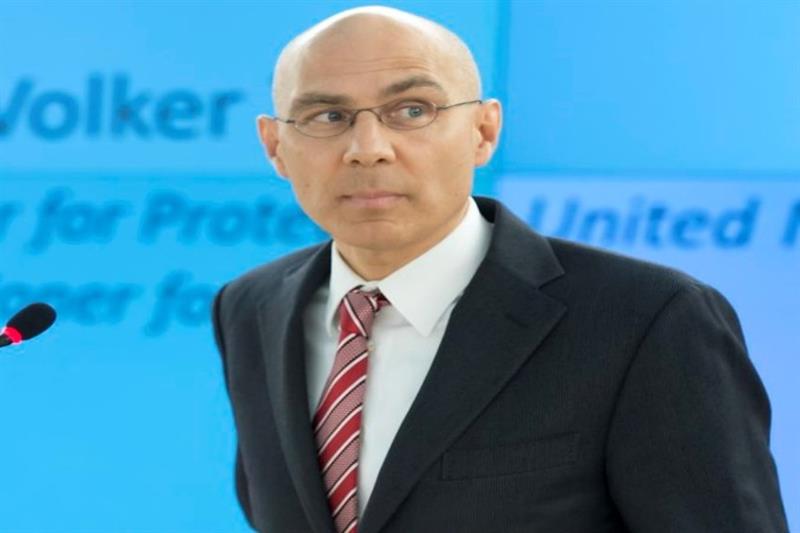
The United Nations High Commissioner for Human Rights, Volker T rk. Photo UN
"Any transition is delicate, and in Sudan, we are at a particularly delicate stage of this transition," Turk told reporters in Khartoum, concluding his first official visit to Sudan.
"I call on all sides involved in the political process to go the extra mile, to work towards prompt restoration of civilian rule in the country, and bring to an end the uncertainty that has left much of the population in peril."
Sudan has been rocked by turmoil since army chief Abdel Fattah al-Burhan led a military takeover in October last year that ousted the mainstream civilian bloc from a power-sharing government and triggered widespread international condemnation.
Near-weekly anti-military takeover protests, a spiralling economic crisis and heightened ethnic clashes in Sudan's remote regions have since fed into the deepening unrest.
Turk, who arrived in Sudan on Sunday, visited the restive Darfur region and held talks with senior Sudanese officials including Burhan.
He decried the crackdown on anti-military takeover protests which has, according to pro-democracy medics, killed 119 people.
"I have asked for the police to establish a way to engage with the communities, to accept the fact that they have legitimate demands," Turk told the press conference.
Talks between Sudan's main civilian bloc, the Forces for Freedom and Change, and the military have been ongoing for weeks in the latest bid to break the deadlock.
The two sides have recently welcomed a transitional constitution developed by the Sudanese Bar Association as the basis for a lasting agreement.
On Wednesday, the FFC said it has approved a two-phase political process based on the Bar Association's initiative.
The initial phase covers a constitutional framework to establish a civilian government while the second comprises a final deal tackling issues including transitional justice and reforms to the military, it noted.
"The FFC will not go forward with the political process alone," said Taha Othman, an FFC leader.
"Other political forces including rebel groups, resistance committees, and political parties will be included."
On Sunday, Burhan said the military was presented with a "document" on the political process.
"We noted some observations that preserve the army's dignity, unity and independence," said Burhan during a visit to a military base west of Khartoum.
He also warned political factions against "interference" in the armed forces' activities, saying "we consider anyone who tries to interfere in the army an enemy."
Short link: